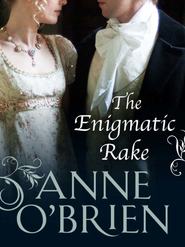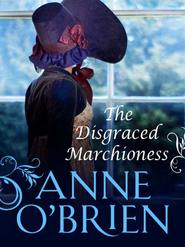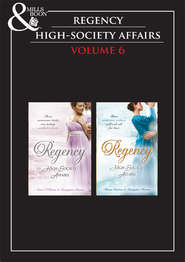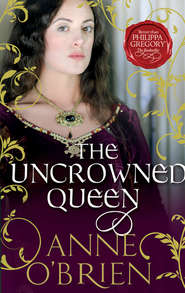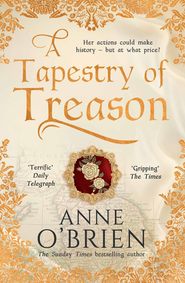По всем вопросам обращайтесь на: info@litportal.ru
(©) 2003-2025.
✖
Battle-Torn Bride
Настройки чтения
Размер шрифта
Высота строк
Поля
Battle-Torn Bride
Anne O'Brien
‘Anne O’Brien has joined the exclusive club of excellent historical novelists.’ - Sunday ExpressForbidden to marry the man of her choice, Lady Beatrice Somerton was forcibly wed to another. Now her husband has met his death on the field of battle—perhaps by the hand of her first and only love. Should she still want such a man?Praise for Anne O’Brien:‘One of the best writers around…she outdoes even Philippa Gregory’ The Sun‘Her writing is highly evocative of the time period… O’Brien has produced an epic tale’ Historical Novel Society‘Anne O’Brien’s novels give a voice to the “silent” women of history’ Yorkshire Post‘Once again O’Brien proves herself a medieval history magician, conjuring up a sizzling, sweeping story’ Lancashire Evening Post‘An exciting and intriguing story of love and historical politics. If you enjoy Philippa Gregory and Alison Weir you will love Anne O'Brien’ We Love This Book‘A brilliantly researched and well-told story; you won’t be able to put this book down’ Candis‘A fast paced historical drama that is full of suspense.’ Essentials
About the Author
ANNE O’BRIEN
was born and lived for most of her life in Yorkshire, England. Here she taught history, before deciding to fulfill a lifetime ambition to write romantic historical fiction. She won a number of short story competitions until published for the first time by Harlequin
.
As well as writing, she finds time to enjoy gardening, cooking and watercolor painting. She now lives with her husband in an eighteenth-century cottage in the depths of the Welsh Marches.
Dear Reader
I wrote the love story of Richard and Beatrice from a true happening in the Wars of the Roses, when lovers were parted by a diplomatic marriage arranged by the lady’s father. The elderly husband met his death on the battlefield at the hands of the lover. Against all the odds, the lovers were reunited and were able to marry. The stuff of high romance indeed!
This led me to wonder how many lovers were torn apart, their love shattered by the callous indifference of an arranged marriage, or by the tragedy of national events which led to bloody and heartbreaking deeds on the battlefield. So Richard and Beatrice suffer brutal separation brought about by influences and treachery far beyond their control. It would take a particular strength of understanding, love and trust between the lovers to overcome such potential heartache, and I set myself to explore it.
I was delighted to create for Richard and Beatrice a true fulfillment out of tragedy and loss.
Do enjoy it,
BATTLE–TORN BRIDE
Anne O’Brien
Prologue
“I loved you. I looked for marriage with you. Yet you betrayed me, Richard. You betrayed our love.”
“Betrayed? What is this …?”
“I think you never loved me at all. It was simply a Twelfth Night flirtation to be cast aside by Candlemas.”
“Beatrice … how can you think that? My heart is yours—has always been yours.”
“I expect you forgot me as soon I was out of sight.”
“Never that. You dishonor me!”
“If that is so—if you truly loved me—how could you abandon me to a marriage with a man such as William Somerton? You have broken my heart, Richard Stafford.”
Chapter One
July 1460: Great Houghton Hall, a golden-stoned manor house.
Lady Beatrice Somerton followed one of her serving maids, who was skillfully balancing tankards and a flagon of ale on a heavy tray, into the Great Hall. Two more of her servants, hastily borrowed from their kitchen duties, came behind her with platters of bread and cheese and slices of cold meat. Another with a dish of mutton pasties. In the Hall were some half a dozen gentlemen, sitting or standing, engaged in deep conversation. Newly arrived, their clothes and boots were covered with dust from a morning’s hard riding. It could be noted from their swords and slim-bladed daggers that they were well-armed.
Their conversation, of a political content and subject to some ribald comment, dried as the lady entered. She was clearly the mistress of the house despite her lack of years. Young and slight of figure she might be, but she bore herself with unmistakable dignity and calm authority. Her manner was forthright, her whole demeanor used to obedience from those who served her. The gentlemen who were seated on bench or stool rose to their feet. Bowed with respect and not a little admiration. Lady Beatrice Somerton was quite beautiful and a force to be reckoned with.
“Be at ease, gentlemen.” She swept them with a smile. “I think ale will be welcome here.”
“Very. We are grateful, my Lady Somerton.” One of the gentlemen stepped forward to bow before her with practiced gallantry. A most attractive lady and not as one would have expected in this household, having met the lord, Sir William Somerton. This lady was many years his junior.
The lady directed her maids who began to pour the ale, watched as they placed the platters, put out pewter plates and knives on the oak table. Looked round to ensure that all was in order.
“If you require anything more, sirs, Betsy will remain within call.” She nodded to the maid at her right hand who dimpled with pleasure and expectation.
Then Beatrice turned to go—but where? To her own chamber or out into the garden, she supposed. She would not be required to attend her husband and his most important guest who were now closeted, alone, in the parlor. That had been made very clear. Any further needs of the visitors could safely be left in the capable hands of the steward, Master Lawson.
Another gentleman entered the vast room with its beamed roof and gleaming paneled walls, after seeing to the deployment of the armed retinue that had accompanied them to Great Houghton. Drawing off his gloves, removing his hat, he placed them on the coffer by the door, then ran his hand through dark hair, which waved around an arresting face. Approached the table with its promise of a long draft of ale to wash away the dust of summer roads.
And came to a halt in the center of the room.
As, at exactly the same moment, did Beatrice Somerton.
His face was suddenly smoothed of all expression, the thought of the ale wiped from his mind. His body went still. His hands tight-fisted at his side.
Her eyes widened, lips parted in shock. The blood drained from her face to leave her skin as pale as the lace decoration on the bodice of her velvet gown. Her fingers tightened on the edge of the empty tray that she would have carried back to the kitchen.
Tension wound the emotions between them to near breaking point, as taut as an expert Glamorgan archer would stretch the waxed-hemp bowstring as he prepared to loose an arrow with deadly accuracy. Surely the tension was obvious to everyone in the room as a living breathing thing? Except that, as Beatrice was faintly aware, the conversation behind her ebbed and flowed as if nothing were amiss: the visitors continued to concentrate on the food and ale and their own comforts.
At last the lady and gentleman found words. But not of any importance or significance for those who might overhear. Nothing to indicate the rapid leap of pulse, the thud of heart against ribcage, the surge of heat through the blood. It was as if their wits had been stripped away in that one moment of meeting.
“My lady. I had not thought …”
“Lord Richard. I did not know …”
Beatrice dropped the tray she was still holding onto the table beside her with a loud clatter. She discovered that she had been holding her breath. When the day dawned it had promised nothing new, nothing out of the way. No occurrence to disrupt her uneventful life, day after day, here at Great Houghton. Surely there should have been some warning. Some indication, some premonition. In the weather perhaps—a violent storm—or in the presence of a magpie, strutting in the kitchen garden, with all its dire warnings and omens. There had been no heralding of this—this disaster!
And yet here in her home was the one man who had the power to turn her life on its head, with a single look from those eyes with their hooded lids, dark and watchful as a hovering raptor, that were even now intent on hers. The one man who could have turned her life to pure gold, causing her heart to throb with joy, her blood to heat with passion at his slightest touch. And what had he done? Why nothing—except to forsake her. Abandoning her to a cold, lonely existence with a man who disliked her, ignored her, humiliated her. To an existence without love.
The day, a warm midsummer’s day when bees flooded the lavender stalks and swallows darted through the gaps in the stable doors to feed their offspring, had indeed started normally enough. Then, perhaps an hour after the midday meal, Sir William Somerton strode through the courtyard and into the stone-flagged entrance hall of his elegant but strongly defended manor house. He stood there, squinting in the sudden gloom, hands fisted on hips.
“Beatrice!” His voice rebounded off the warm stone. “Beatrice!” His frown deepened as he raised his voice further.
No response. The house remained silent around him. The tapestried hangings absorbed the sound.
“Beatrice. In God’s name, where are you, girl?” He was halfway to the foot of the staircase with a hiss of ill-temper, when a lady appeared on the half landing, and came to a halt, looked down over the carved balustrade.
“There you are. What are you doing? Why are you never around when I need you? We have visitors, it seems. Perhaps a score or more, so the sentry reports.”
“I have been folding linen and storing it with herbs against the moth,” the lady explained to answer her lord’s first question. Her voice, composed despite her peremptory summons and its rough tone, contained no apology. She descended the stairs slowly, not quite to the bottom, so that her eyes, the deep purple of the heartsease in her herb garden but on this occasion lacking their tender gentleness, were on a level with Sir William’s. Her gaze was direct and did not fall before his fierce stare.
“Who is it who visits, my lord?”
“Lord Grey de Ruthin, by my soul.” Somerton’s grizzled brows merged into one heavy line at the prospect. His thin lips thinned further. “A black ragged staff, clear enough to see emblazoned on all the livery of the escort and on the standard. All very fine and imposing! He is accompanied by a number of gentlemen as well as an armed retinue. Quite an entourage, in fact.” Sir William stared at his wife. “What in God’s name will de Ruthin want?” A demand, as if Beatrice would know the answer. “I warrant I have paid my feudal dues to him this year.”
Anne O'Brien
‘Anne O’Brien has joined the exclusive club of excellent historical novelists.’ - Sunday ExpressForbidden to marry the man of her choice, Lady Beatrice Somerton was forcibly wed to another. Now her husband has met his death on the field of battle—perhaps by the hand of her first and only love. Should she still want such a man?Praise for Anne O’Brien:‘One of the best writers around…she outdoes even Philippa Gregory’ The Sun‘Her writing is highly evocative of the time period… O’Brien has produced an epic tale’ Historical Novel Society‘Anne O’Brien’s novels give a voice to the “silent” women of history’ Yorkshire Post‘Once again O’Brien proves herself a medieval history magician, conjuring up a sizzling, sweeping story’ Lancashire Evening Post‘An exciting and intriguing story of love and historical politics. If you enjoy Philippa Gregory and Alison Weir you will love Anne O'Brien’ We Love This Book‘A brilliantly researched and well-told story; you won’t be able to put this book down’ Candis‘A fast paced historical drama that is full of suspense.’ Essentials
About the Author
ANNE O’BRIEN
was born and lived for most of her life in Yorkshire, England. Here she taught history, before deciding to fulfill a lifetime ambition to write romantic historical fiction. She won a number of short story competitions until published for the first time by Harlequin
.
As well as writing, she finds time to enjoy gardening, cooking and watercolor painting. She now lives with her husband in an eighteenth-century cottage in the depths of the Welsh Marches.
Dear Reader
I wrote the love story of Richard and Beatrice from a true happening in the Wars of the Roses, when lovers were parted by a diplomatic marriage arranged by the lady’s father. The elderly husband met his death on the battlefield at the hands of the lover. Against all the odds, the lovers were reunited and were able to marry. The stuff of high romance indeed!
This led me to wonder how many lovers were torn apart, their love shattered by the callous indifference of an arranged marriage, or by the tragedy of national events which led to bloody and heartbreaking deeds on the battlefield. So Richard and Beatrice suffer brutal separation brought about by influences and treachery far beyond their control. It would take a particular strength of understanding, love and trust between the lovers to overcome such potential heartache, and I set myself to explore it.
I was delighted to create for Richard and Beatrice a true fulfillment out of tragedy and loss.
Do enjoy it,
BATTLE–TORN BRIDE
Anne O’Brien
Prologue
“I loved you. I looked for marriage with you. Yet you betrayed me, Richard. You betrayed our love.”
“Betrayed? What is this …?”
“I think you never loved me at all. It was simply a Twelfth Night flirtation to be cast aside by Candlemas.”
“Beatrice … how can you think that? My heart is yours—has always been yours.”
“I expect you forgot me as soon I was out of sight.”
“Never that. You dishonor me!”
“If that is so—if you truly loved me—how could you abandon me to a marriage with a man such as William Somerton? You have broken my heart, Richard Stafford.”
Chapter One
July 1460: Great Houghton Hall, a golden-stoned manor house.
Lady Beatrice Somerton followed one of her serving maids, who was skillfully balancing tankards and a flagon of ale on a heavy tray, into the Great Hall. Two more of her servants, hastily borrowed from their kitchen duties, came behind her with platters of bread and cheese and slices of cold meat. Another with a dish of mutton pasties. In the Hall were some half a dozen gentlemen, sitting or standing, engaged in deep conversation. Newly arrived, their clothes and boots were covered with dust from a morning’s hard riding. It could be noted from their swords and slim-bladed daggers that they were well-armed.
Their conversation, of a political content and subject to some ribald comment, dried as the lady entered. She was clearly the mistress of the house despite her lack of years. Young and slight of figure she might be, but she bore herself with unmistakable dignity and calm authority. Her manner was forthright, her whole demeanor used to obedience from those who served her. The gentlemen who were seated on bench or stool rose to their feet. Bowed with respect and not a little admiration. Lady Beatrice Somerton was quite beautiful and a force to be reckoned with.
“Be at ease, gentlemen.” She swept them with a smile. “I think ale will be welcome here.”
“Very. We are grateful, my Lady Somerton.” One of the gentlemen stepped forward to bow before her with practiced gallantry. A most attractive lady and not as one would have expected in this household, having met the lord, Sir William Somerton. This lady was many years his junior.
The lady directed her maids who began to pour the ale, watched as they placed the platters, put out pewter plates and knives on the oak table. Looked round to ensure that all was in order.
“If you require anything more, sirs, Betsy will remain within call.” She nodded to the maid at her right hand who dimpled with pleasure and expectation.
Then Beatrice turned to go—but where? To her own chamber or out into the garden, she supposed. She would not be required to attend her husband and his most important guest who were now closeted, alone, in the parlor. That had been made very clear. Any further needs of the visitors could safely be left in the capable hands of the steward, Master Lawson.
Another gentleman entered the vast room with its beamed roof and gleaming paneled walls, after seeing to the deployment of the armed retinue that had accompanied them to Great Houghton. Drawing off his gloves, removing his hat, he placed them on the coffer by the door, then ran his hand through dark hair, which waved around an arresting face. Approached the table with its promise of a long draft of ale to wash away the dust of summer roads.
And came to a halt in the center of the room.
As, at exactly the same moment, did Beatrice Somerton.
His face was suddenly smoothed of all expression, the thought of the ale wiped from his mind. His body went still. His hands tight-fisted at his side.
Her eyes widened, lips parted in shock. The blood drained from her face to leave her skin as pale as the lace decoration on the bodice of her velvet gown. Her fingers tightened on the edge of the empty tray that she would have carried back to the kitchen.
Tension wound the emotions between them to near breaking point, as taut as an expert Glamorgan archer would stretch the waxed-hemp bowstring as he prepared to loose an arrow with deadly accuracy. Surely the tension was obvious to everyone in the room as a living breathing thing? Except that, as Beatrice was faintly aware, the conversation behind her ebbed and flowed as if nothing were amiss: the visitors continued to concentrate on the food and ale and their own comforts.
At last the lady and gentleman found words. But not of any importance or significance for those who might overhear. Nothing to indicate the rapid leap of pulse, the thud of heart against ribcage, the surge of heat through the blood. It was as if their wits had been stripped away in that one moment of meeting.
“My lady. I had not thought …”
“Lord Richard. I did not know …”
Beatrice dropped the tray she was still holding onto the table beside her with a loud clatter. She discovered that she had been holding her breath. When the day dawned it had promised nothing new, nothing out of the way. No occurrence to disrupt her uneventful life, day after day, here at Great Houghton. Surely there should have been some warning. Some indication, some premonition. In the weather perhaps—a violent storm—or in the presence of a magpie, strutting in the kitchen garden, with all its dire warnings and omens. There had been no heralding of this—this disaster!
And yet here in her home was the one man who had the power to turn her life on its head, with a single look from those eyes with their hooded lids, dark and watchful as a hovering raptor, that were even now intent on hers. The one man who could have turned her life to pure gold, causing her heart to throb with joy, her blood to heat with passion at his slightest touch. And what had he done? Why nothing—except to forsake her. Abandoning her to a cold, lonely existence with a man who disliked her, ignored her, humiliated her. To an existence without love.
The day, a warm midsummer’s day when bees flooded the lavender stalks and swallows darted through the gaps in the stable doors to feed their offspring, had indeed started normally enough. Then, perhaps an hour after the midday meal, Sir William Somerton strode through the courtyard and into the stone-flagged entrance hall of his elegant but strongly defended manor house. He stood there, squinting in the sudden gloom, hands fisted on hips.
“Beatrice!” His voice rebounded off the warm stone. “Beatrice!” His frown deepened as he raised his voice further.
No response. The house remained silent around him. The tapestried hangings absorbed the sound.
“Beatrice. In God’s name, where are you, girl?” He was halfway to the foot of the staircase with a hiss of ill-temper, when a lady appeared on the half landing, and came to a halt, looked down over the carved balustrade.
“There you are. What are you doing? Why are you never around when I need you? We have visitors, it seems. Perhaps a score or more, so the sentry reports.”
“I have been folding linen and storing it with herbs against the moth,” the lady explained to answer her lord’s first question. Her voice, composed despite her peremptory summons and its rough tone, contained no apology. She descended the stairs slowly, not quite to the bottom, so that her eyes, the deep purple of the heartsease in her herb garden but on this occasion lacking their tender gentleness, were on a level with Sir William’s. Her gaze was direct and did not fall before his fierce stare.
“Who is it who visits, my lord?”
“Lord Grey de Ruthin, by my soul.” Somerton’s grizzled brows merged into one heavy line at the prospect. His thin lips thinned further. “A black ragged staff, clear enough to see emblazoned on all the livery of the escort and on the standard. All very fine and imposing! He is accompanied by a number of gentlemen as well as an armed retinue. Quite an entourage, in fact.” Sir William stared at his wife. “What in God’s name will de Ruthin want?” A demand, as if Beatrice would know the answer. “I warrant I have paid my feudal dues to him this year.”






